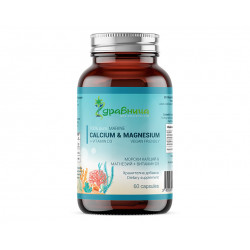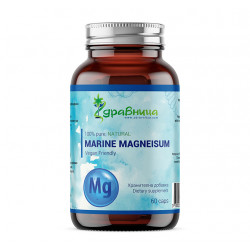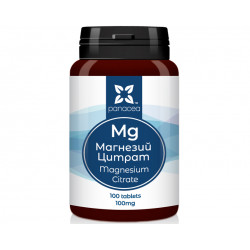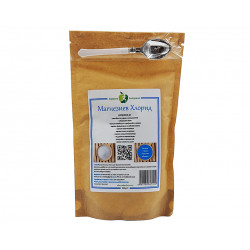Decreased magnesium levels during pregnancy lead to premature contractions and allopathic medicine treats this condition primarily with magnesium sulfate. However, high doses of tocolic magnesium sulphate prescribed to pregnant women in premature birth may be toxic and sometimes fatal to the newborn.
Magnesium sulphate given to women immediately prior to too early premature birth activity could improve the outcome for the baby in many respects. No serious adverse effects were observed at lower doses.
Magnesium chloride is needed to produce a large amount of stomach acids every day and to stimulate starch-processing enzymes. We may use magnesium as oxide or carbonate, but then we will have to produce extra hydrochloric acid to absorb it. Many elderly people, especially if they have chronic illnesses, desperately need more magnesium but can not produce enough hydrochloric acid and as a result can not absorb the oxide or carbonate.
Sulfate is also important and influences almost all cellular functions. Sulfate attaches to phenols and makes them less harmful by preparing them to be thrown out of the kidneys. Many of these potentially toxic molecules are contained in food. Sulfate regulates the activity of many molecules. Many systems in the body do not function well in a sulphate-depleted environment. Sulfur is so important to life that the body obviously takes borrowed proteins from the muscles to prevent the element from running out of it.
Magnesium sulfate saves human lives in emergency situations as quickly and efficiently as magnesium chloride, but magnesium chloride meets the requirements of a universal medicine, something that can not be said for magnesium sulphate.
* Find a product for a specific disease such as write his name (eg .: Diabetes)
No products
Magnesium action during pregnancy?
Health products

Related products
- Marine Calcium and Magnesium with vitamin D3, Zdravnitza,...
Completely natural product containing the mineral complex "Aquamin F" - a bioactive source of calcium and magnesium of marine origin with added Vitamin D3.
9,05 € / 17,70 лв - Marine Magnesium, Zdravnitza, 60 capsules
Marine magnesium of "Zdravnitza" contributes to maintaining the health of bones and teeth, normal muscle function, normalization of energy metabolism and more.
8,95 € / 17,50 лв - Magnesium Citrate, Panacea, 100 tablets
Magnesium Citrate supports bones, muscles, cardiovascular system and central nervous system. The best digestible form of the magnesium.
9,80 € / 19,17 лв - Magnesium, food supplement, 30 softgel capsules
Magnesium contributes to maintaining normal bone and tooth status, normal muscle function, reducing fatigue, etc.
3,27 € / 6,40 лв - Calcium, Magnesium, Zinc and Vitamin D, PhytoPharma, 30...
Nutritional supplement that supports the health of bones, joints, hair, nail teeth, contributes to the normal function of the immune system, etc.
3,90 € / 7,63 лв - Magnesium chloride, dieatry supplement, Zdravna Akademia,...Отзиви към продукта: 2
Magnesium chloride reduces fatigue and tiredness, supports electrolyte balance, normalizes metabolism and energy production.
10,23 € / 20,01 лв - Calcium, Magnesium and Zinc, Niksen, 30 tablets
Calcium, magnesium, zinc contribute to the normal maintenance of the health of the nervous system, bones, muscles, teeth, hair and nails.
2,91 € / 5,69 лв - Supermagnesium, solution, Veridia 21, 200 ml
Supermagnesium contains the most common mineral deficiencies (magnesium, potassium, zinc) and vit. B6.
6,29 € / 12,30 лв










